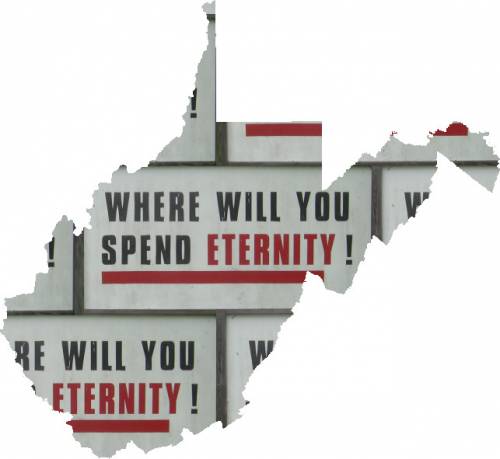
As you may have heard, Bernie Sanders won the presidential primary election in West Virginia. You might also be wondering why on earth a Jewish self-described democratic socialist could make headway in an small-minded, bigoted strip mine of a state that pulled for Mitt Romney in every single fucking county in 2012; where politicians routinely brag about being more conservative and more Jesus-soaked than their opponents, any concession towards environmentalism or a diversified economy is assaulted as a "war on coal," and almost every one of Sanders' financial and social policy points is unmentionable anathema.
I was born in West Virginia, I lived the first 22 years of my life there, and I feel qualified to comment about the state, its problems, and its peculiarities. The state is extremely rural and isolating. Most people regard church as their sole avenue of social interaction. People like the things that they're used to, and are extremely hostile about anything that challenges their 1950s-era preconceptions about the world. White people run the country, queers and atheists don't exist, coal seams will always be there to be mined, and you'll burn in hell if you disagree.
For decades, the Democratic Party dominated sub-national politics in the state...largely due to inertia; though also due to an older generation that remembered West Virginia's labor history and the corrosive effect that Republican policies have on human lives. Suffice to say, there's little of that generation left...and the shift in party identity among racist white conservatives that began with Nixon's Southern Strategy of 1968 has taken hold here, too. The Christian-nationalist Republican party now holds all three of West Virginia's congressional seats, the state Senate, and the House of Delegates.
Every change in West Virginia happens a little slower than in other states, though. Through the duration of the state's period of Democratic Party dominance (1932-2014), most critical elections happened at the primary level. West Virginia also has a semi-closed primary system, and changing party affiliations is cumbersome. Thus, it was advantageous for voters to register themselves as Democrats...even among staunch conservative people who would be Republican fringe in any northern state.
What this means is that many or most Democrats in West Virginia aren't liberal, and don't support the national Democratic Party. They didn't support the party in 2000, when they directly made George W. Bush President of the United States. Since 2008, every Democratic presidential primary result has been an act of spite: They voted for Hillary Clinton in 2008, when Barack Obama ran a superior campaign and was close to clinching the nomination. In 2012, almost half the state voted for a convicted felon as a protest vote for no reason other than to spite President Obama. And in 2016, they voted for Bernie Sanders.
For all his "socialist" credentials, Bernie Sanders' campaign has quite a few flaws. He responds to questions with vague generalities, not plans that can be implemented. He's done a poor job courting nonwhite voters. His view on gun safety (or the lack thereof, as people die) is a colossal blind spot. His ability to enact progressive legislation is contingent upon Democratic control of Congress, yet he refuses to raise funds for downlevel elections. He parrots right-wing talking points against his primary competitor. Six months ago, I was a Sanders fan...but over the last six months, Sanders' campaign has become so contradictory and corrosive that it's made my head spin.
As all this raged, Hillary Clinton supported Democratic congressional and state-level candidates, withstood adversity, and courted the diverse coalition that Barack Obama won in 2008 and 2012. She's outlined plans to support clean energy and combat anthropogenic climate change. She's also attracted more than 2.7 million votes more than Sanders, she's the stronger and most electable candidate, and is well on her way to clinching the Democratic nomination.
West Virginia Democratic-registered voters aren't voting for Sanders because they expect him or want him to be President. They're voting for him because he's the weaker and less electable candidate. They want him to lose...because they've already made up their mind and the man they want to be president is Donald Trump. They want to vote for a man who plans to track and label Muslims in a Nazi-style database. They want to vote for a man who brands Mexicans as "rapists" and yearns for a wall along the border paid out of Mexico's pocket. They want to vote for a man who incites hatred and racial violence at his rallies. They want to vote for a man who earns endorsements from white nationalists...and reciprocates by selecting white nationalists as delegates. They want to vote for the frontrunner in the Republican Party...who embraces and crystallizes every position Republicans have strove to endorse in the last 50 years, and who epitomizes everything that is insidious and evil about mankind.
And that, in conclusion, is my two cents on the West Virginia primary.
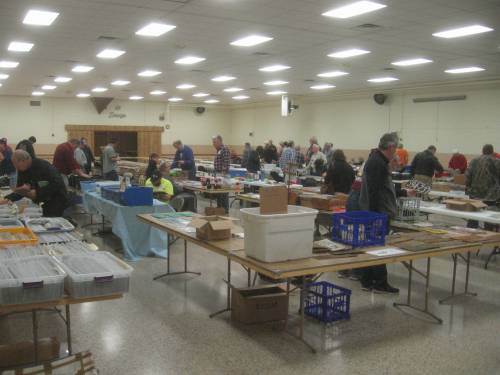
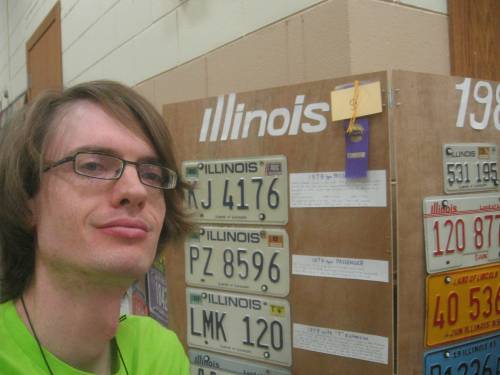
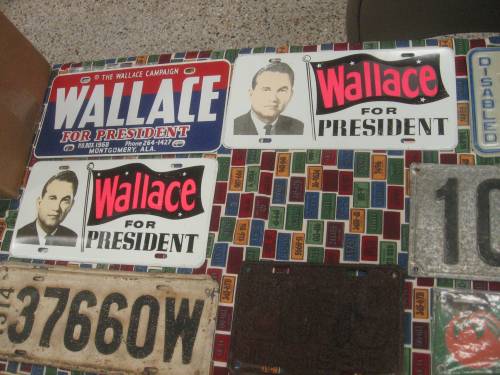
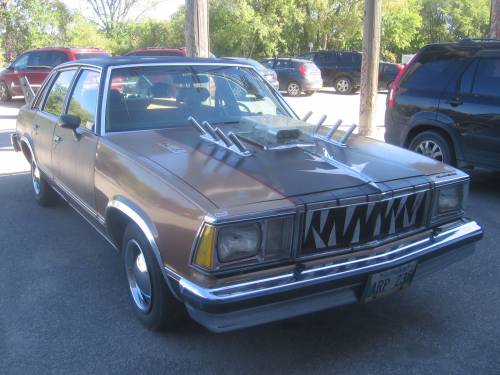
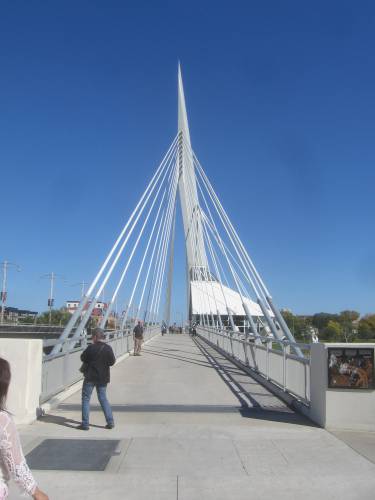
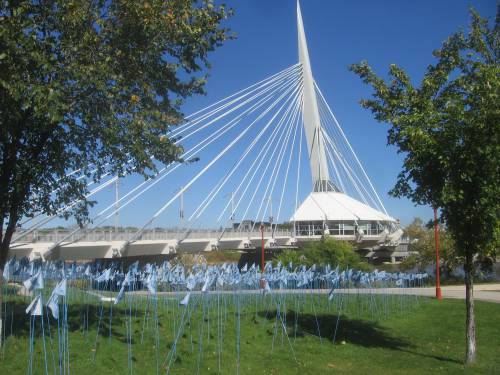
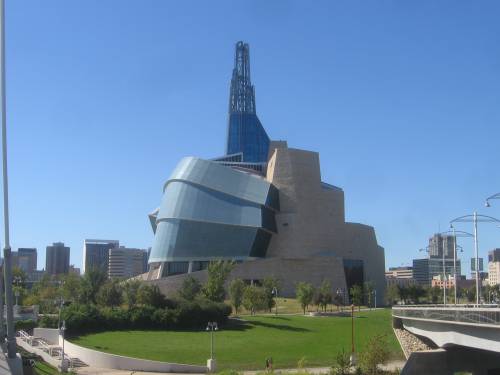
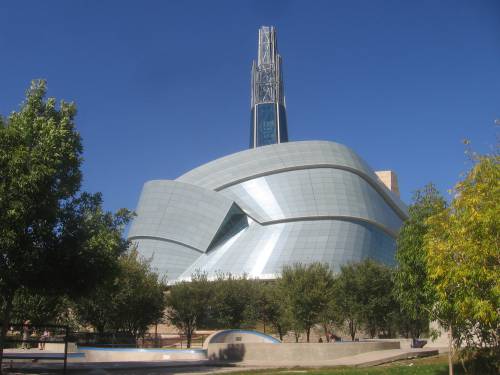
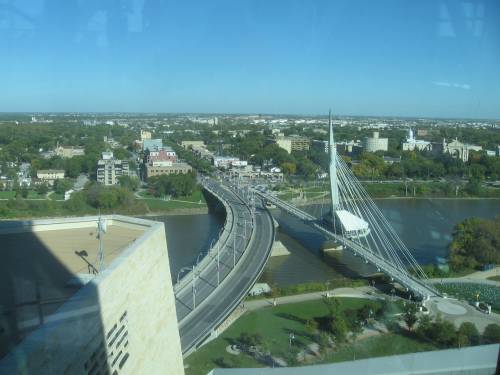
Recent Comments